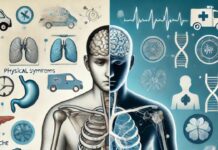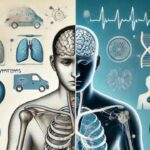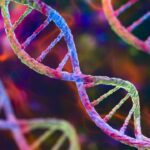Eggs are a staple in many diets around the world, valued for their nutritional content and versatility. They’re packed with high-quality protein, vitamins, and minerals, all wrapped up in one convenient package. When it comes to heart health and a balanced diet, the question of how many eggs you can safely eat per week is a point of interest for many health-conscious individuals.
Historically, eggs have received mixed reviews due to their cholesterol content, but recent research has shed more light on their role in a healthy diet. Most people can enjoy eggs without significantly impacting their heart health. In fact, incorporating eggs into your weekly meal planning can contribute positively to your nutrient intake.
Understanding the recommended consumption can help maintain a diet that’s both enjoyable and nourishing. While there’s no one-size-fits-all answer, as individual dietary needs can vary, for the average adult, up to seven eggs a week is generally considered acceptable. This takes into account the dietary patterns that interact with egg consumption to influence overall health.
Nutritional Profile of Eggs
Eggs are a powerhouse of essential nutrients, contributing significantly to your daily nutritional needs. Here’s a detailed look at their composition.
Proteins and amino acids
Eggs are an excellent source of high-quality protein, offering about 6 grams per large egg. They contain all nine essential amino acids in the right proportions, making them a complete protein source. This is crucial for your body’s muscle growth, repair, and overall maintenance.
Vitamins and minerals
A large egg is packed with a variety of vitamins and minerals. It includes vitamin D, which supports bone health and immune function, and vitamin B12, which is vital for brain health and energy production. Eggs are also a source of choline, essential for cognitive development. The presence of lutein and zeaxanthin supports eye health. They contain fat-soluble vitamins like A, D, E, and K as well.
Fat Content and Cholesterol
An egg contains about 5 grams of fat, mostly found in the yolk. This includes both saturated and unsaturated fats. The latter comprises omega-3 fatty acids, which are beneficial for heart health. Despite having approximately 186 milligrams of cholesterol, recent studies suggest that for most people, the cholesterol in eggs doesn’t significantly affect blood cholesterol levels, as once believed.
Health Benefits and Considerations
In evaluating the impact of eggs on your health, it’s important to consider the balance between their nutritional benefits and how they fit into your overall diet, particularly concerning heart health, weight management, and essential nutrients for brain and eye health.
Heart health and cholesterol
Eggs have been scrutinized for their cholesterol content and their potential link to heart disease. However, it’s essential to differentiate between LDL (bad) cholesterol and HDL (good) cholesterol. Moderate egg consumption, characterized by up to seven eggs per week, has not been found to significantly affect the risk of heart disease in most people. Furthermore, eggs can increase HDL cholesterol, which may protect against heart disease.
- LDL Cholesterol: Concerns primarily revolve around eggs increasing low-density lipoprotein.
- HDL Cholesterol: Eggs may contribute to raising high-density lipoprotein levels.
- Blood Cholesterol: Individual responses to dietary cholesterol vary, with most people seeing little change in blood cholesterol levels from eating eggs.
Weight Management
Regarding weight loss and metabolic health, eggs can be a valuable food due to their high protein content and sense of satiety. High-protein foods like eggs may aid in weight management by reducing appetite and increasing fullness, possibly leading to a decrease in overall calorie intake.
- Protein Content: Supports satiety and helps in building and repairing tissues.
- Caloric Intake: Can contribute to a balanced diet when considering calorie content and overall nutrition.
Brain and Eye Health
Eggs are not only a rich source of protein but also contain antioxidants and nutrients crucial for brain health and vision. Lutein and zeaxanthin, antioxidants found in egg yolks, play a role in maintaining good vision and might protect against eye diseases.
- Antioxidants: Lutein and zeaxanthin help neutralize free radicals and support eye health.
- Brain Nutrients: Choline, found in eggs, is vital for brain function and development.
| Nutrient | Benefit | Note |
|---|---|---|
| Protein | Supports muscle maintenance and repair | High satiety |
| Lutein and Zeaxanthin | Protects eyes from harmful light waves | May reduce the risk of age-related macular degeneration. |
| Choline | Essential for brain function | Supports cell membrane structure |
Dietary Guidelines and Recommendations
When considering how many eggs to eat per week, it’s important to balance nutrition with your overall dietary needs and health profile. The following subsections cover the latest recommendations on egg consumption limits and how eggs can fit into a heart-healthy diet.
Egg consumption limits
The American Heart Association (AHA) acknowledges that eggs are a part of a healthy diet, providing valuable nutrients. However, eggs also contain dietary cholesterol—about 186 milligrams (mg) in one large egg, challenging earlier recommendations that suggested a maximum of 300 mg of cholesterol per day. Current guidelines don’t set a specific limit on the number of eggs one can eat, but they emphasize moderation and consideration of individual health factors such as diabetes, family history, and risk of heart disease. A healthcare professional can offer personalized advice.
Incorporating eggs into a heart-healthy diet
A heart-healthy diet focuses on the reduction of saturated fats more than dietary cholesterol. Eggs can still be included, but it’s suggested that you pay attention to the preparation method and overall diet. For a balanced approach, consider these tips:
- Opt for egg whites: Egg whites are cholesterol-free and provide protein without the added dietary cholesterol of the yolk.
- Balance with vegetables: Combine eggs with nutrient-rich vegetables to enhance the nutritional profile of your meal.
Be aware of your blood levels and consult with a dietitian if you need guidance on how to incorporate eggs into your diet responsibly. Remember, your healthcare professional is your best resource for dietary advice tailored to your health needs.
Egg-Based Meals and Alternatives
Incorporating eggs into your weekly menu offers a versatile and protein-rich option. Let’s break down some specific egg-centric meals for both breakfast and beyond.
Breakfast Options
-
Omelet: Start your day with a high-protein omelet combining whole eggs or egg whites with a range of fillings such as cheese, spinach, and mushrooms. For a lighter version, use mostly egg whites and add more veggies.
Ingredients Quantity Whole eggs 2 Egg whites 1 Cheese 1/4 cup (shredded) Spinach 1/2 cup Mushrooms 1/4 cup (sliced) -
Scrambled Eggs: Quick and easy, scrambled eggs can be made more interesting with the addition of cheese, diced tomatoes, or even some lean bacon or sausage. Remember to watch portions if you’re monitoring cholesterol intake.
Lunch and Dinner Recipes
-
Frittata: Think of this as a thicker, more substantial omelet that you can load with vegetables and even some meat, like ham or sausage. It’s perfect for making ahead and eating throughout the week.
Ingredients Quantity Whole eggs 6 Egg whites 2 Milk 1/4 cup Ham (diced) 1/2 cup Cheese 1/2 cup (shredded) Assorted vegetables (e.g., bell peppers) 1 cup -
Poached Eggs: Serve over a salad or with lean meats and steamed vegetables for a protein-packed meal. Preparing them without extra fat ensures you get the nutritional benefits without added calories.
By incorporating whole eggs and egg whites into your cooking, you benefit from their high protein content while also being able to control your fat and cholesterol intake by adjusting the ratio of yolks to whites. From a classic French omelet to a packed frittata, each meal can be tailored to satisfy your taste preferences and nutritional requirements.
Addressing Common Myths
In recent years, research has clarified much about the role of eggs in a balanced diet, debunking several common misconceptions in the process.
Egg Consumption and Heart Failure
You may have heard that eating eggs could lead to heart failure, especially if you’re predisposed to cardiovascular issues. Clinical studies indicate that moderate egg consumption, which may range from 6–12 eggs per week, does not exacerbate heart failure risk in individuals with no prior heart conditions. It’s important to incorporate them into a heart-healthy diet that is low in trans fats and processed foods.
Dietary Cholesterol Misconceptions
It’s a widespread myth that the cholesterol in eggs is a red flag for high cholesterol levels in the blood. It turns out that dietary cholesterol has a much smaller effect on blood cholesterol levels than previously thought. Saturated and trans fats found in some other foods are more significant contributors to high LDL (the “bad” cholesterol). Eggs should be eaten in moderation, and if you have concerns, consult a healthcare professional.
Eggs and Blood Cholesterol Confusion
The relationship between eggs and blood cholesterol levels has long been misunderstood. Eggs contain HDL (the “good” cholesterol), which may help lower the risk of heart disease and stroke. Rather than affecting your health negatively, moderate egg consumption can be part of a diet that maintains good health. As always, individual health conditions vary, so it’s wise to talk to a healthcare professional about your specific nutritional needs.
Remember that your overall health and dietary patterns are what contribute to a well-rounded, heart-healthy diet. When in doubt, seek personalized advice from a healthcare professional who understands your health history and nutritional requirements.














![Technical Aspects of 844 Area Code in 2024 [Detail Guide] 844 Area Code](https://articleify.com/wp-content/uploads/2024/01/844-Area-Code-150x150.jpg)














